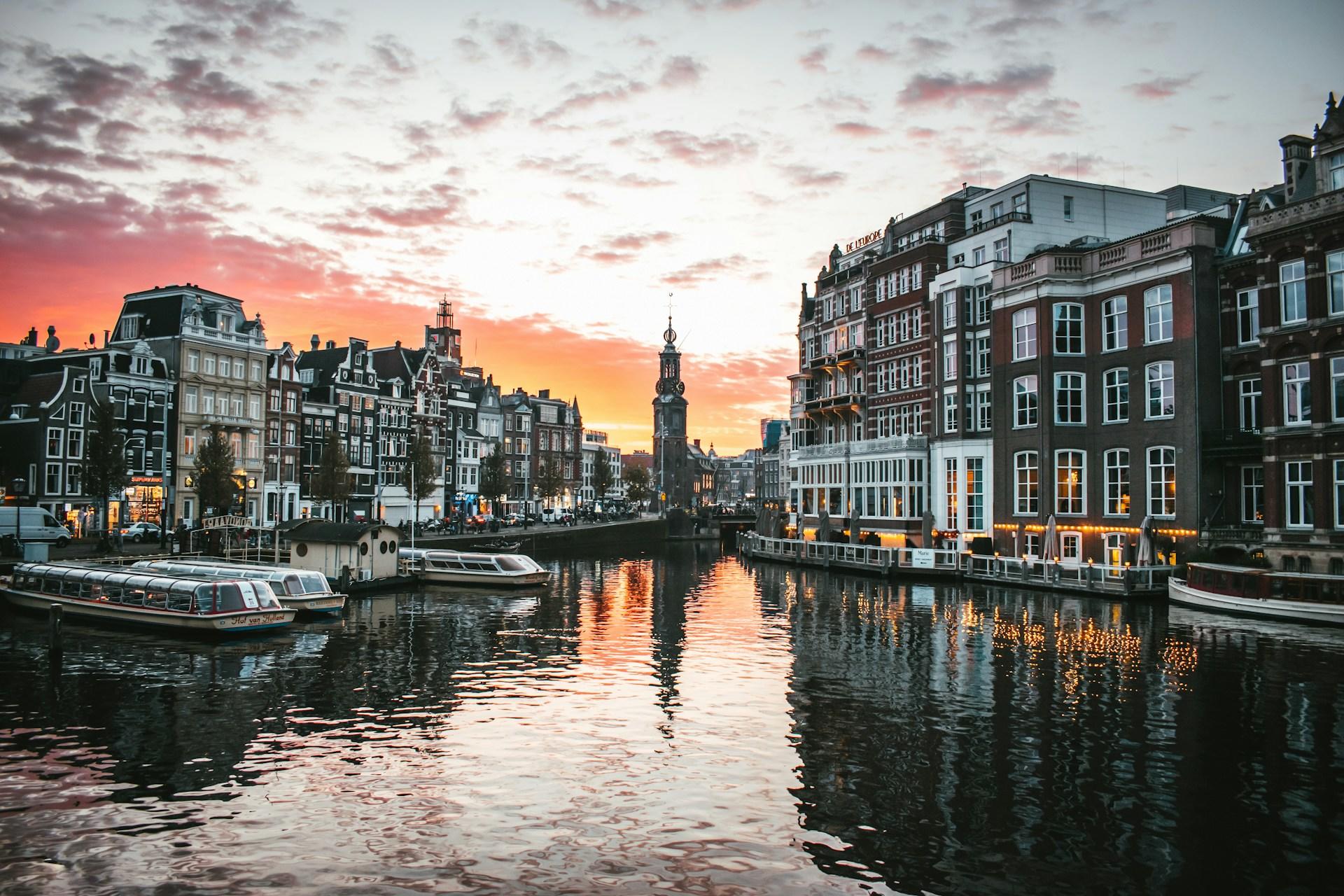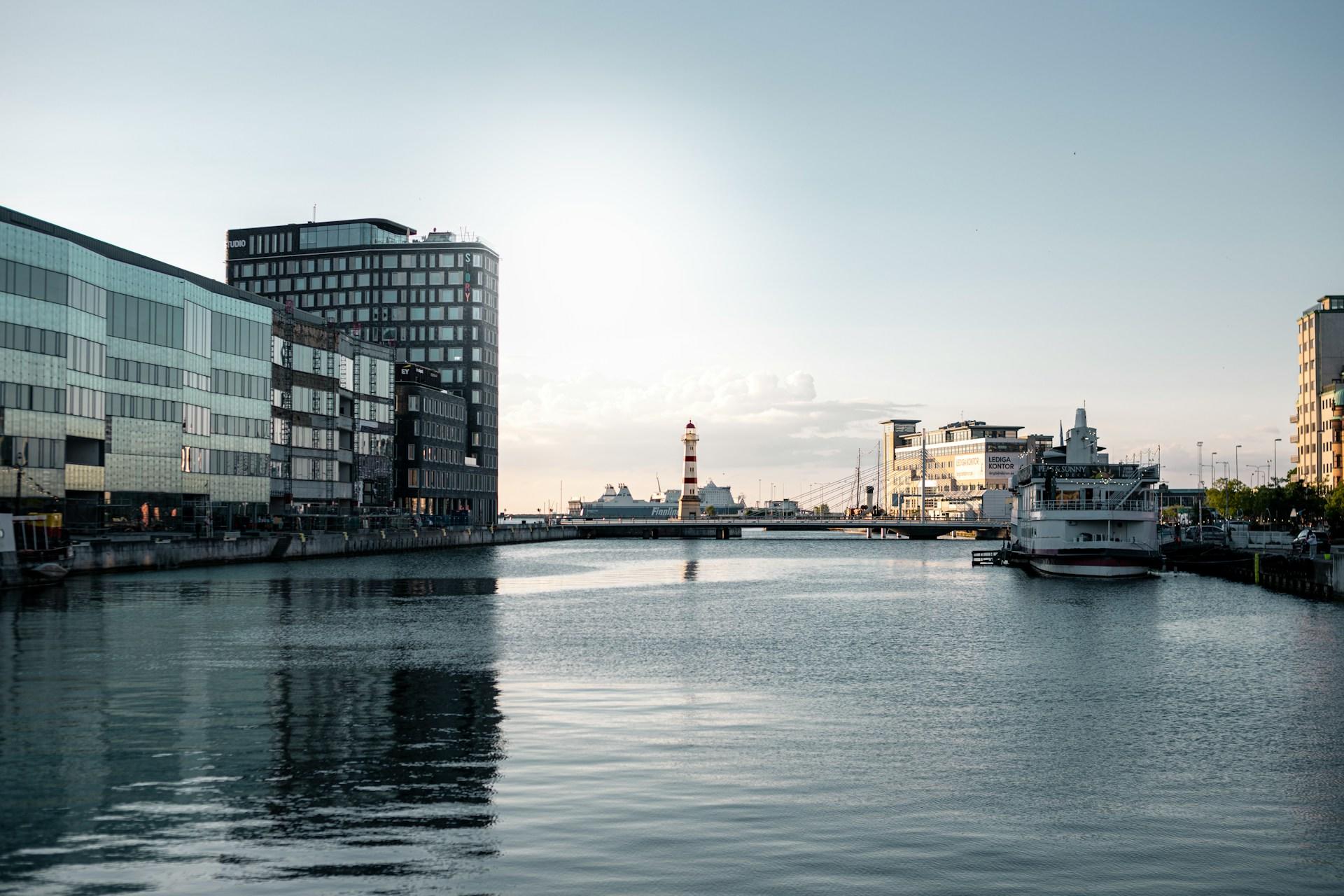Eurovision is an annual song competition held between countries, mainly in Europe. The competition started in 1956 and is one of the longest-running TV events.
Countries compete against one another with one song each. At the end of the evening, winners are decided through a combination of a popular vote and a jury.
The format and rules of the competition have changed over time, but every contest has had a winner (and in 1969, four winners!). Naturally, some countries have won more times than others.
Here are the countries that have won the Eurovision Song Contest: How many times have they won it?

Countries that Have Won Eurovision Once
The following countries have all won Eurovision once, and the year they won:
Monaco (1971)
Monaco's win in 1971 came through Séverine, a French singer who sang "Un banc, un arbre, un rue."
Belgium (1986)
Belgium won just once in 1986 with “J'aime la vie” by Sandra Kim.
Yugoslavia (1989)
Yugoslavia won with “Rock Me” in 1989. Riva was a Croatian pop band. Yugoslavia participated 27 times in the Eurovision Song Contest and hosted it once in 1990. After the breakup of Yugoslavia, the country never participated again as a single entry.
Estonia (2001)
In the early 2000s, Eurovision saw a lot of first-time winners.
Estonia won Eurovision in 2001 with the song "Everybody", performed by Tanel Padar, Dave Benton, and 2XL.
Latvia (2002)
Immediately after Estonia's win in 2001, Latvia won in 2002 with Marie N and “I Wanna”.
Turkey (2003)
Turkey's one and only win came after first-time winners Estonia and Latvia. Sertab Erener's "Everyway That I Can" meant that the 2004 competition was held in Turkey.
Greece (2005)
Greece's Helena Paparizou, with the aptly named "My Number One", won in 2005.
Finland (2006)
Finland won the 2006 Eurovision Song Contest with "Hard Rock Hallelujah" by Lordi. The song is arguably the heaviest song to win the competition, with contemporary pop music tending to dominate.
Serbia (2007)
Serbia won in 2007 with “Moltiva” performed by Marija Šerifović. It was the first winner in years to feature no lyrics in the English language.
Russia (2008)
Russia's first and only win came immediately after Serbia with Dima Bilan and "Believe". Bilan had finished second in the 2006 competition.
Azerbaijan (2011)
Ell and Nikki representing Azerbaijan with “Running Scared” won in 2011.
Portugal (2017)
Portugal's bossa nova entry, "Amar pelos dois" by Salvador Sobral, was the country's only victory to date in 2017.

Countries that Have Won Eurovision Twice
Four different countries have won the Eurovision Song Contest a total of two times: Spain, Switzerland, Germany, and Austria.
Spain (1968, 1969)
Spain's two Eurovision victories came consecutively in the early years of the competition.
Massiel with "La La La" won in 1968. Massiel performed the song in Spanish after the original performer, Joan Manuel Serrat, refused to perform it if it couldn't be sung in Catalan. At the time, Spain was under the control of dictator Franco, whose regime regularly repressed languages other than Spanish.
Following Massiel's victory, the following year's competition was held in Madrid at the Teatro Real. There were sixteen entrants that year, and Spain's entry was "Vivo cantando", performed by Salomé. Though no other entry received more points than Salomé, three other countries also received the same points.
Since there were no tie-breaking rules for the competition at the time, Salomé was declared a joint winner alongside the United Kingdom, Netherlands, and France.
Switzerland (1956, 1988)
While it's been a while since Switzerland's two Eurovision victories, Switzerland can boast the first-ever Eurovision Song Contest victory.
"Refrain" by Lys Assia won the competition, which was held in Switzerland and featured 14 entries.
In 1988, Switzerland's entry featured a young and rising pop star from Canada. The singer's Eurovision victory would help her gain international recognition. The singer's name, Céline Dion.
Her Eurovision win with Switzerland came before she'd ever even released an album in English.
Germany (1982, 2010)
Germany's first-ever victory at the Eurovision Song Contest came in 1982 with "Ein bißchen Frieden" by Nicole, a 17-year-old German secondary school student at the time.
It would be a while before Germany achieved its second Eurovision win, with the 2010 entry, "Satellite", performed by Lena.
Germany is one of Eurovision's "Big Five," meaning it automatically qualifies for the competition. However, with 2 wins from 66 entries, Germany could typically perform better at the event.
Austria (1966, 2014)
Austria's won the competition's 10th edition in 1966. The song, “Merci, Chérie” by Udo Jürgens.
Like Germany, Austria would spend many years waiting for a second victory. The win would finally come in 2014 with "Rise Like a Phoenix" by Conchita Wurst.

Countries that Have Won Eurovision Three Times
Four countries can boast three Eurovision Song Contest wins: Norway, Denmark, Italy, and Ukraine.
Norway (1985, 1995, 2009)
The Scandinavian nations have quite the record at the Eurovision Song Contest.
Norway has won three times in three consecutive decades. While the streak was broken since they didn't win Eurovision in the 2010s, three victories put them at the business end of Eurovision wins.
The first win came in 1985 with "La det swinge" performed by Bobbysocks!
Ten years later, "Nocturne" performed by Secret Garden brought Norway a second victory.
Alexander Rybak would complete Norway's hat trick with "Fairytale" in 2009.
Denmark (1963, 2000, 2013)
Denmark can also boast three wins at Eurovision, though they didn't come as consistently as Norway's wins.
“Dansevise” from Grethe and Jørgen Ingmann won the 1963 Eurovision Song Contest held in London.
The Danes would have to wait decades for their second win. "Fly on the Wings of Love" by Olsen Brothers won in 2000.
The next win would take less time. In 2013, "Only Teardrops" by Emmelie de Forest brought the third win.
Italy (1964, 1990, 2021)
Italy was one of Eurovision's first winners after a spell of domination by France and Netherlands. In 1964, "Non ho l'età" by Gigliola Cinquetti gave Italy its first win.
“Insieme: 1992” by Toto Cutugno would bring victory number 2 to Italy decades later.
Italy would win again in 2021 with "Zitti e buoni" by the rock group Måneskin, another of Eurovision's rare but welcome victories by heavier music.

Ukraine (2004, 2016, 2022)
In more recent Eurovision history, Ukraine has emerged as a force to be reckoned with. The first victory was in 2004 with Ruslana's song “Wild Dances”.
It wouldn't be long before Ukraine won again with “1944” by Jamala in the 2016 Eurovision Song Contest held in Stockholm, Sweden.
Ukraine's third win was in 2022 in Rome. "Stefania" by Kalush Orchestra was chosen to represent Ukraine at Eurovision just two days before Russia invaded. Despite the victory, the following year's edition of the competition was held in the UK on behalf of Ukraine.
Countries that Have Won Eurovision Four Times
Only one country has won Eurovision four times, Israel. Two of Israel's victories came consecutively in 1978 and 1979.
The first was "A-Ba-Ni-Bi" by Izhar Cohen and the Alphabeta, and the second was "Hallelujah" by Milk and Honey.
Israel won for a third time in 1998 with “Diva” by Dana International.
Most recently, the victory of “Toy” by Netta in 2018 made it four wins for Israel.
Countries that Have Won Eurovision Five Times
When it comes to the countries that have won five times, two of the "Big Five" are included, and while every Eurovision victory is valid, you'll see that in the early days of the competition, the same countries tended to win again and again.
France (1958, 1960, 1962, 1969, 1977)
France's first three victories came in the early years of Eurovision, with the country winning every other year between 1958 and 1962.
France also shared the four-way victory with Spain, the Netherlands, and the United Kingdom.
France's most recent victory was in 1977 with "L'Oiseau et l'Enfant" by Marie Myriam. Though France last won a while ago, it did come 2nd in 2021.
Luxembourg (1961, 1965, 1972, 1973, 1983)
Without a win in over four decades, Luxembourg did very well in Eurovision in the 60s and 70s, with two wins each. Win #5 came in 1983.
This year, Luxembourg made it to the finals for the first time in 30 years.
United Kingdom (1967, 1969, 1976, 1981, 1997)
The United Kingdom is one of the “Big Five” and automatically gains entry to the tournament.
"Puppet on a String" by Sandie Shaw brought the UK its first win. Two years later, it shared the victory with three other countries.
With one win each subsequent decade, the UK is typically an unpopular Eurovision entry with as many last places as victories.
Netherlands (1957, 1959, 1969, 1975, 2019)
The Netherlands won the 2nd and 4th Eurovision Song Contests and shared that famous four-way victory in 1969.
In 1975, "Ding-a-dong" by Teach-In took the Netherlands to 4 victories.
Of the countries with five victories, "Arcade" by Duncan Laurence makes the Netherlands one of Eurovision's recent winners.

Countries that Have Won Eurovision Seven Times
Here we are at the business end of Eurovision. Only two countries have ever won seven times: Ireland and Sweden.
Ireland (1970, 1980, 1987, 1992, 1993, 1994, 1996)
For a time, Ireland was an unbeatable Eurovision powerhouse. Already on three wins by the 1990s, three consecutive wins in the 1990s put Ireland on six victories, a feat that wouldn't be matched until Sweden's sixth victory in 2015!
However, with the 1996 victory, Ireland was already sitting comfortably with seven victories anyway.
Sweden (1974, 1984, 1991, 1999, 2012, 2015, 2023)
When Sweden won Eurovision in 1974 with ABBA and “Waterloo”, it arguably did more for ABBA's career than it did for Sweden at Eurovision.
In 1991, when Sweden won for a third time, it caught up with Ireland. With 4 more wins in the next 5 years, though, Ireland had an insurmountable lead over Sweden because of several winners in quick succession.
Without a win since 1996, though, Sweden has slowly but surely caught up, reaching win #4 before the millennium, picking up two more wins in the 2010s, and winning last year's competition.
At the time of writing, we'll have to wait and see if either country extends its lead.

Will it be the hosts celebrating 50 years since their first victory?
Or will it be Ireland, with its first qualification in years?
Summarise with AI:















